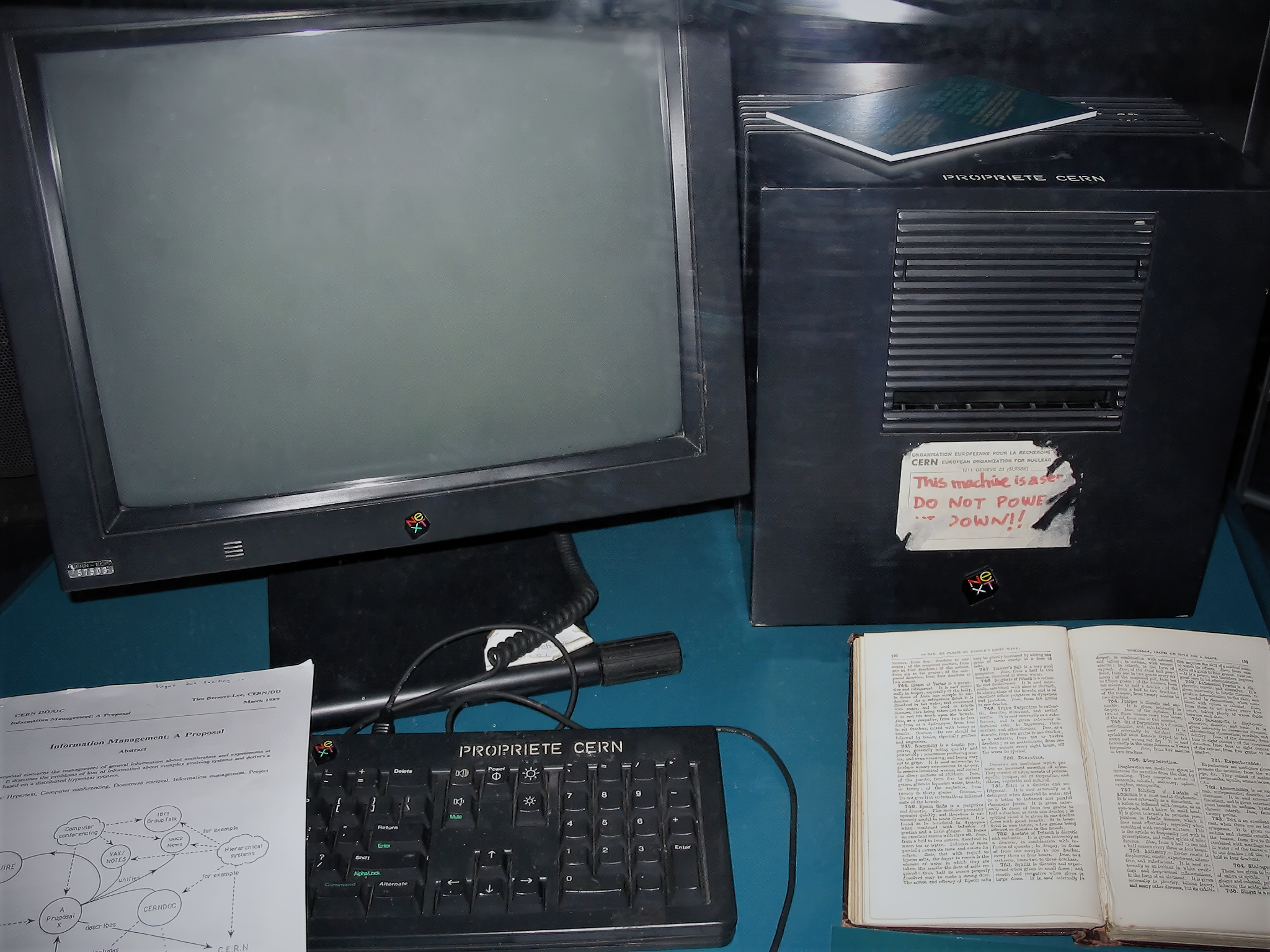 |
| This images comes from Wikimedia Commons: http://commons.wikimedia.org/wiki/File:First_Web_Server.jpg |
In the December 2010 issue of Scientific American, you can find Tim Berners-Lee’s article entitled “Long Live the Web.” Berners-Lee is now director of the World Wide Web Consortium, but in 1990 he was working at CERN in Eurpe, when he developed the protocols and browsers that have since become the World Wide Web. His article in the new SA is introduced with a startling observation:
The Web is critical not merely to the digital revolution but to our continued prosperity- and even our liberty. Like democracy itself, it needs defending.
In the following pages, Berners-Lee reminds readers of the basic ideas upon which the Web was built, and also points out recent actions that may challenge those ideas.
Universality-- Because all content is based on the same protocols (hyper text markup language at it most fundamental level), any content can be linked to any other content. Consider this: Your middle school soccer team web site is as available on the web as any giant online retailer. Universality is one feature of the web that allows for innovation; anyone can create a service on the web that can then be connected and reconnected by anyone . Berners-Lee suggests that some of the social networks that allow information to be used only within the site is a threat to universality.
Open Standards-- The web is built using protocols and rules that are available to anyone to use without the need to pay anyone or seek any one's permission. Although you are free to create a model in which you use those standards and then charge for access to the model (membership driven web sites for example), you cannot sell the protocols. Berners-Lee uses iTunes as an example of a service that uses the Internet, but not open standards; access to the iTunes store is controlled by Apple.
Net-neutrality-- In recent years there has been a good deal of chatter about the rights of an Internet service provider (ISP) to make deals with content providers to provide preferential service. (Imagine a web where is was easy to get to Amazon, but hard to get to the web site of your favorite local book seller.) Berenrs-Lee points out this is contrary to the concepts of democracy, free-exchange of information, and science that created the web.
Intrusion-- Berners-Lee is very concerned about developments that allow (both technically and politically) for ISP’s to monitor what information you are accessing (once that information has been collected it can be bought and sold as well). So, your employer or your insurance company or your neighbor who does not like you can find out what web sites you (or any one who has access to your connection) visit.
In our schools, we have some responsibility to protect our students and to ensure our web use is for the purposes of our institution. (It should be noted that this post is made on “cyberMonday” the day in which we use our work connections for holiday shopping!) So, we do have some rules and conditions on out web use that are imposed (quite reasonably) by our employers. At the same time, we need to make sure our students are exposed to the fundamental ideas that resulted in the web becoming the resource it is today.
Berners-Lee concludes his article by observing, “[n]ow is an exciting time. Web developers, companies, governments, and citizens should work together openly and cooperatively, as we have done thus far, to preserve the Web’s foundamental principles, as well as those of the Internet, ensuring that the technological protocols and social conventions we set up respect basic human values. The goal of the web is to preserve humanity. We build it now so that those who come to it later will be able to create things that we cannot imagine.”
Sure seems to me that educators have an essential role in ensuring this happens.
The article can be found on the Scientific American web site:
No comments:
Post a Comment